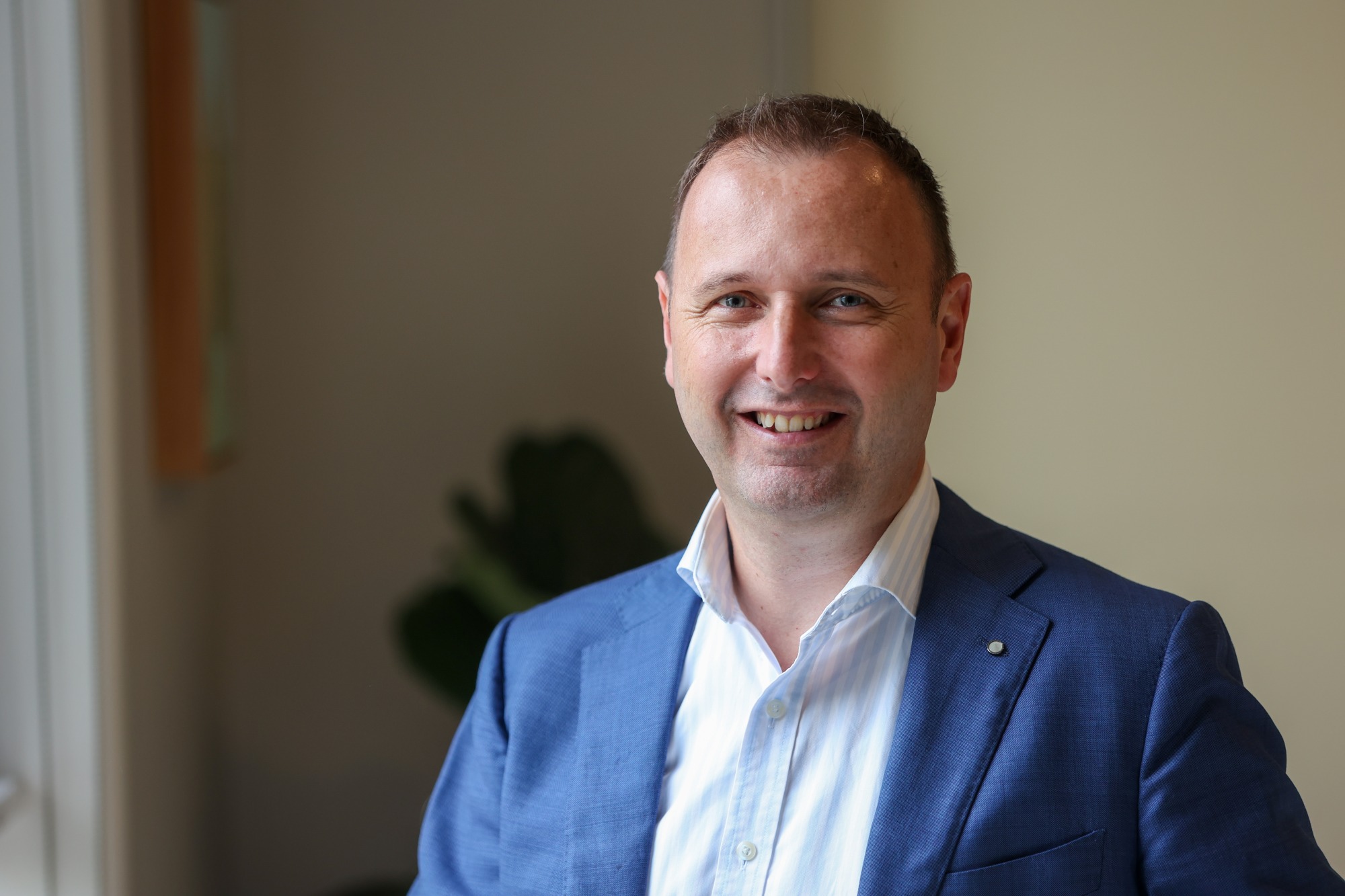ROOT
Retirement is not a dirty word: From lost time to lasting impact
We are on the brink of a silent crisis. In the next few years, Australia will see an unprecedented wave of experienced, high-achieving women stepping out of the workforce. They’re retiring at a scale we’ve never seen - and most are walking towards it without a map.
Retirement is not a dirty word: From lost time to lasting impact
We are on the brink of a silent crisis. In the next few years, Australia will see an unprecedented wave of experienced, high-achieving women stepping out of the workforce. They’re retiring at a scale we’ve never seen - and most are walking towards it without a map.

For many, “retirement” isn’t the long-awaited reward it’s supposed to be. It’s a word whispered like bad news, conjuring images of slowing down, fading away, and quietly stepping aside so the “real” action can happen without you. It feels less like a golden chapter and more like a line in the sand that says: the end is coming.
And that line is approaching faster than ever. In Australia, the workforce is aging at an unprecedented rate, and women are at the centre of that shift. According to the ARC Centre of Excellence in Population Ageing Research (CEPAR), the share of workers aged 55 and over has more than doubled in the past three decades, and by 2050, those aged 55+ will make up around 40 per cent of the adult population.
This isn’t a slow burn - it’s a demographic turning point.
Yet when we talk about retirement, we talk about money. Rarely do we talk about meaning. That’s where the real shock comes - when networks vanish, the title disappears, and the sense of purpose that once defined you is suddenly gone.

It might sound contradictory for an academic accountant to say, but we need to move our discussion away from money and move towards challenging the stigma around this phase of life, approaching it with the same ambition and foresight we’ve applied to our careers.
For women who’ve spent decades excelling in high-pressure, high-profile roles, retirement can be an emotional double blow: the shock of “lost time” as days blur together, and the disorienting loss of identity. Without the title, the influence, the milestones, it’s easy to feel invisible - even irrelevant. And this isn’t just personal; it reflects a broader societal pattern where older women are undervalued and underrepresented across many spheres of life.
But it doesn’t have to be this way. If we can confront the unspoken truths of retirement and plan ahead, we can transform this chapter into one of purpose, influence, and joy.
The time gap we don’t talk about
When you search “retirement for women” online, nine out of ten results are about money. Important, yes - but only one piece of the puzzle. Women are now retiring almost three years later than they did two decades ago, yet many still retire with 25–30% less superannuation than men. That’s the financial gap. The time gap is just as critical and deserves our attention - the gulf between having hours to fill and having a plan to fill them with meaning.
At The Main Act, we see how quickly those first months of “freedom” can turn into restless drifting. Without structure, time slips away. With intention, time becomes a platform for the life you’ve been too busy to imagine. As I often say: “You’ve planned your finances, now it’s time to plan your life.”
Reclaiming identity and influence
Leaving a professional role can feel like stepping out of the spotlight. In the workplace, you’re a leader, a decision-maker, a connector. Outside it, those networks can disappear almost overnight. I’ve met women who went from managing teams and budgets to wondering if they were still relevant. The truth is, influence doesn’t vanish - it simply needs a new stage. That could mean mentoring, community leadership, creative projects, or finally reviving passions put aside years ago.
Designing the next chapter
The first step is to think about who you are outside of your work. What’s important to you? What gives you energy? How do you want to contribute to your community? These aren’t abstract questions - they shape the rhythm and meaning of your life.
When almost two-thirds of women say they wish they had started planning sooner, we need to put planning on the main stage.
That’s why we created The Main Act based on Stanford’s life design principles: to help women design their next chapters with intention, so they can embrace this change with clarity and confidence. We build on what’s already there - your skills, your connections, your values - and turn it into a personal blueprint for the years ahead. Small, intentional actions create powerful momentum.
The takeaway
Retirement isn’t the end of your story; it’s not the dirty word people think it is. Rather, it’s the start of a chapter you get to write entirely on your own terms. But the women who thrive are the ones who start shaping it before it arrives. We are living through a once-in-a-generation moment where more women than ever are crossing that threshold. The question is: will we do it by default... or by design?
It’s time to shed the stigma, start the conversation, and lead the shift we need to see and redraw that line in the sand for ourselves.

Retirement
Australian retirement optimism reaches five-year high despite economic uncertainty
Australians are demonstrating significantly higher levels of optimism and confidence about their retirement prospects, with sentiment reaching a five-year peak despite ongoing global economic ...Read more

Retirement
New study reveals habits that boost retirement confidence
A recent study by AustralianSuper has found that less than half of Australians are confident about their retirement prospects, but simple daily habits can significantly improve this outlook. Read more

Retirement
AMP study reveals generational gap in financial communication and expectations
A new study by AMP has uncovered significant differences in how younger Australians and their parents approach intergenerational wealth matters. Read more

Retirement
Home care admissions surge 267% in a decade, prompting calls for aged care reform
The Retirement Living Council (RLC) is urging the Australian Government to prioritise aged care reforms following the release of new data showing a significant increase in home care admissions over ...Read more

Retirement
Retirement Living Council urges government to implement urgent home care reforms as waitlist doubles
The Retirement Living Council (RLC) is calling on the Australian Government to implement urgent home care reforms, following new data revealing that the number of Australians approved for a home care ...Read more

Retirement
Retirees face dilemma in supporting children amid housing affordability crisis, AMP research finds
New research from AMP has revealed that four in five Australians aged 65 and over believe their children face similar or harder financial challenges than they did growing up, largely due to rising ...Read more

Retirement
Retirement Living Council criticises Budget for neglecting seniors' housing needs
The Retirement Living Council (RLC) has expressed disappointment with the Australian government's FY25 Budget, stating that it fails to address the housing needs of a large cohort of older Australians ...Read more

Retirement
Government urged to include retirement units in housing targets to address supply challenges
The Retirement Living Council (RLC), the national peak body for retirement and seniors' housing accommodation, is calling on the government to include retirement units in the Prime Minister's target ...Read more

Retirement
Australian retirement optimism reaches five-year high despite economic uncertainty
Australians are demonstrating significantly higher levels of optimism and confidence about their retirement prospects, with sentiment reaching a five-year peak despite ongoing global economic ...Read more

Retirement
New study reveals habits that boost retirement confidence
A recent study by AustralianSuper has found that less than half of Australians are confident about their retirement prospects, but simple daily habits can significantly improve this outlook. Read more

Retirement
AMP study reveals generational gap in financial communication and expectations
A new study by AMP has uncovered significant differences in how younger Australians and their parents approach intergenerational wealth matters. Read more

Retirement
Home care admissions surge 267% in a decade, prompting calls for aged care reform
The Retirement Living Council (RLC) is urging the Australian Government to prioritise aged care reforms following the release of new data showing a significant increase in home care admissions over ...Read more

Retirement
Retirement Living Council urges government to implement urgent home care reforms as waitlist doubles
The Retirement Living Council (RLC) is calling on the Australian Government to implement urgent home care reforms, following new data revealing that the number of Australians approved for a home care ...Read more

Retirement
Retirees face dilemma in supporting children amid housing affordability crisis, AMP research finds
New research from AMP has revealed that four in five Australians aged 65 and over believe their children face similar or harder financial challenges than they did growing up, largely due to rising ...Read more

Retirement
Retirement Living Council criticises Budget for neglecting seniors' housing needs
The Retirement Living Council (RLC) has expressed disappointment with the Australian government's FY25 Budget, stating that it fails to address the housing needs of a large cohort of older Australians ...Read more

Retirement
Government urged to include retirement units in housing targets to address supply challenges
The Retirement Living Council (RLC), the national peak body for retirement and seniors' housing accommodation, is calling on the government to include retirement units in the Prime Minister's target ...Read more








